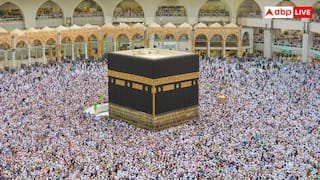Jivitputrika Vrat 2024: Date, Muhurat, Significance, And All You Need To Know About This Festival
Mothers observe the Jivitputrika fast for the well-being of their children, believing that it blesses them with a long life and prosperity. Know the date, significance, and auspicious timings.

Jivitputrika Vrat 2024: Mothers observe various fasts throughout the year for the well-being of their children, one of which is the Jivitputrika Vrat. Also known as Jitiya Vrat or Jiutya Vrat, this fast is observed on the Ashtami Tithi (eighth day) of the Krishna Paksha (waning phase of the moon) in the month of Ashwin.
Similar to the Chhath Puja, this fast is considered extremely challenging. It is believed that those who observe this fast ensure their children are protected from all kinds of hardships and are blessed with a long life.
Here are the date and the auspicious timings for Jivitputrika Vrat in 2024:
ALSO READ: When Is Hartalika Teej 2024? Date, Time, Puja Vidhi- All You Need To Know
Jivitputrika Vrat 2024 Date
Jivitputrika Vrat will be observed on September 25, 2024. Like the Teej festival, this fast is observed without food and water (nirjala). It is particularly celebrated in Bihar, Bengal, and Eastern Uttar Pradesh.
Jivitputrika Vrat 2024 Auspicious Timings
According to the Panchang (Hindu calendar), the Ashtami Tithi of the Krishna Paksha in the month of Ashwin will begin at 12:38 PM on September 24, 2024, and end at 12:10 PM on September 25, 2024.
Significance Of Jivitputrika Vrat
According to ancient beliefs, any mother who observes this fast never has to face the separation of her child. Her children are blessed with long life and are protected from all sorrows and difficulties throughout their lives. The fast involves worshipping Jimutavahana, a prince of the Gandharvas.
The History Behind The Name 'Jivitputrika'
During the Mahabharata war, Ashwatthama became enraged after his father's death. In a fit of anger, he entered the Pandava camp, where five people were sleeping. Mistaking them for the Pandavas, he killed all five to avenge his father. However, they were actually Draupadi's five sons. When Arjuna learned of this, he captured Ashwatthama and took away his divine jewel. Ashwatthama's fury intensified, and he sought revenge by destroying the unborn child of Abhimanyu's wife, Uttara, while it was still in the womb.
However, Lord Krishna revived the unborn child by transferring all his merits to it, and the child came back to life. Because the child died and was revived, it was named "Jivitputrika" (the living son). The Jivitputrika Vrat is thus rooted in this tale, symbolising life, protection, and blessings for one’s children.


































